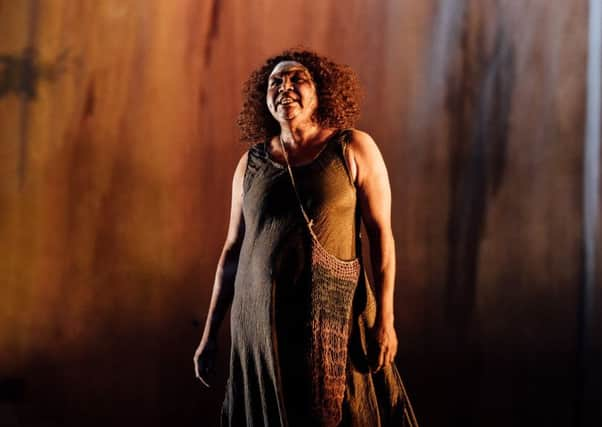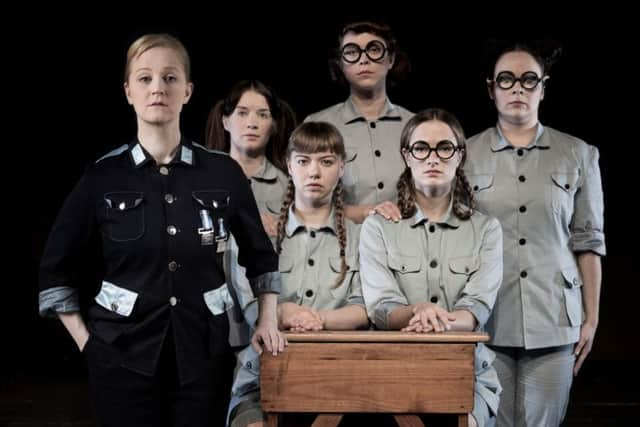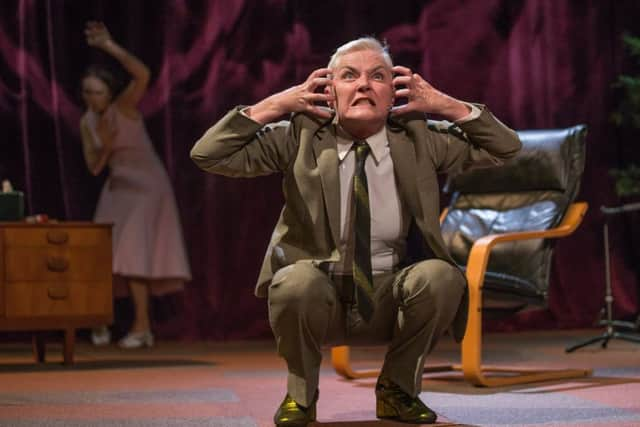Joyce McMillan: What we learned from this year’s Edinburgh International Festival and Fringe


It began with the very first show I saw on this year’s Fringe, Deer Woman at the Canada Hub; a terrible, disturbing tale, powerfully told by actor and storyteller Cherish Violet Blood, of one native Canadian woman’s response to the shockingly high rate of violent death among women of her community. It continued through Kiinalik: These Sharp Tools, a powerful dialogue between southern and northern Canada staged at The Studio during the first weekend of the International Festival.
It appeared again, with a Scottish slant, in the radiant Scottish storyteller Mara Menzies’s show Blood And Gold, at the Scottish Storytelling Centre, and in Javaad Allipoor’s astonishing Rich Kids: A History of Shopping Malls in Teheran; it was unexpectedly strong in David Hare’s Scots-accented Peter Gynt, at the Festival Theatre. And it reached its climax in Sydney Theatre Company’s European premier performances of the wonderful The Secret River, based on Kate Grenville’s novel, which tells of the white settlement of the area around Sydney in the early 19th century, and of the fate of the Dharug aboriginal people who lived there; a production touched by tragedy, when its great star Ningali Lawford-Wolf, who first came to Edinburgh in 1995 with her Fringe show Ningali, about being a young aboriginal woman at that time, was taken ill and died. The company will now continue their European tour in her memory.
Advertisement
Hide AdThe theme that emerged so strongly in the first week of festival theatre, in other words, was the theme of colonisation and colonialism, what it does to those whose land is taken, what it does to those who take it; and although it is a fundamental theme in itself – and one consciously pursued by programmer Kate McGrath in her You Are Here section of the Edinburgh International Festival programme – what was thrilling about this year’s International Festival and Fringe, for me, was how they provided a new and powerful lens through which to view some of the Fringe’s long-standing preoccupations with themes including race, gender and environment.


Without colonialism, after all, no slavery, no legacy of slavery in modern race relations; and perhaps no threatened return of white supremacism, of the kind explored from many different angles by the brilliant Dael Orlandersmith of New York in her mighty monologue Until The Flood, at the Traverse. Without colonialism, no savage assaults on “faraway” natural environments from the Arctic to the Amazonian rainforest, and perhaps no climate crisis; the climate crisis so beautifully meditated upon in Ontroerend Goed’s stunning Are We Not Drawn Forward To New Era, at Zoo Southside, and hinted at in the unsettling poetry of Stef Smith’s Enough, at the Traverse.
Without colonialism, fewer huge disparities in wealth between nations and continents, and therefore less likelihood of the refugee crisis so eloquently and spectacularly explored in Nicola McCartney and Dritan Kastrati’s How Not To Drown at the Traverse, and – in a completely different style, with free beer – by the inimitable Sh!t Theatre at Summerhall, in their Malta-inspired show Sh!t Theatre Drink Rum With Expats.
And without colonialism, The Secret River argues, perhaps fewer extreme patriarchal attitudes in western culture, as men increasingly exclude women from the knowledge of just how their superior wealth and status has been won. From Gina Moxley’s fabulous Abbey Theatre and Pan Pan show The Patient Gloria, at the Traverse, through Woven Voices’ Subject Mater at Paradise In The Vault, to new Scottish company Groupwork’s The Afflicted at Summerhall, company after company looked back over the deep history of the last 60 years to try to understand the extraordinary pressures and inequalities imposed on women during that time of apparent progress, and their continuing struggle for equality. Some of the real-life 1960s Californian psychiatric interviews that form the basis for The Patient Gloria fairly take the breath away with their overt, controlling hostility; and from the award-winning Berlin physical theatre show Raven at Assembly Roxy, about pressures on working mothers, to Sasha and Taylor’s circus-inflected Everything I See I Swallow at Summerhall, this year’s Fringe never ceased to observe and anatomise the continuing barrage of real-world and online judgment and criticism young women now face, on issues ranging from personal appearance and academic performance to sexuality and basic life choices.
There were also shows that went straight for the politics of this tense moment, including Henry Naylor’s The Nights, at the Gilded Balloon, about a right-wing tabloid journalist attempting to exploit Iraq veterans and their views, or Reetta Honkakoski’s thrilling and chilling physical theatre piece The Desk, at Summerhall, about the anti-democratic appeal to their followers of the new generation of charismatic “strong” leaders. And just occasionally, as in Owen O’Neill’s beautiful, hilarious and Beckettian Shaving The Dead at Assembly George Square Studios, or Rowan Rheingans’s Dispatches On The Red Dress at the Scottish Storytelling Centre, there was a moment of meditation, gentle or absurd, that made all the stresses and horrors of today’s news seem more bearable.


The Fringe, in particular, is now such a vast event, and so controversial in many aspects, that it is impossible to generalise about it in any meaningful way; for any statement that’s made, it’s immediately possible to produce dozens of counter-examples.
Advertisement
Hide AdWhat seemed to me true this year, though, was that the best of the theatre artists on the Fringe, and in the International Festival, had once again taken a look around the chaos of the world we currently seem to inhabit, and found ways of understanding and exploring that chaos that remind us, at least, of humanity’s extraordinary capacity – given the will – to analyse, to invent, and to imagine our way into new worlds. That the International Festival and Fringe have their downsides is obvious; still too white, still too expensive for many, and still poorly managed, in terms of their impact, by a city council that commands little confidence. At heart, though, Edinburgh in August remains a peaceful global platform without parallel: a place where people of good will and imagination were once again able to gather briefly to think about where we stand, in this late summer of 2019; and to dream about how we might begin to move forward.